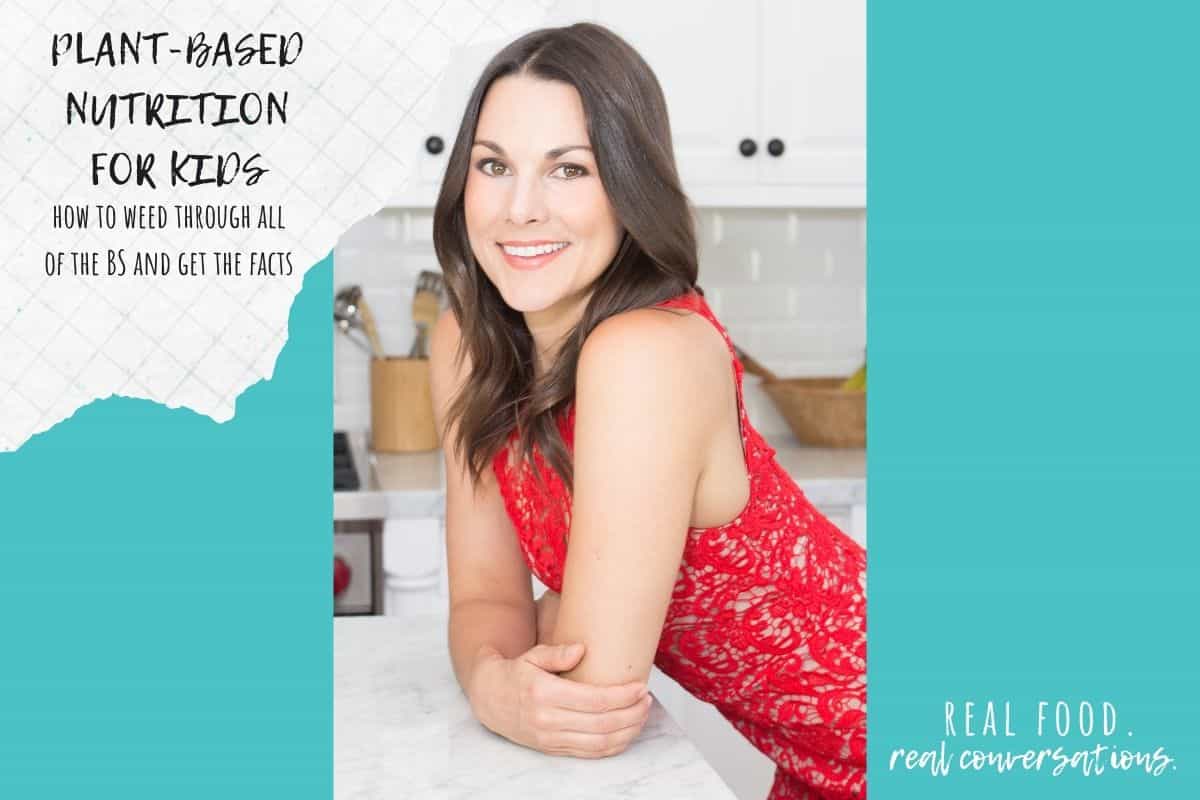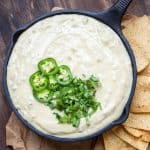Knowing what's best when it comes to nutrition for kids, let alone plant-based options, is so hard! Today's expert shares all the facts.

There is so much conflicting information out there, weeding through it all can be a full time job. But Whitney Tabaie is here to help make the job a whole lot easier!
Podcast: Play in new window | Download | Embed Subscribe now! Apple Podcasts | iHeartRadio | TuneIn | Deezer | RSS | More
Whitney English Tabaie is a Registered Dietitian Nutritionist, Certified Personal Trainer, author, and co-founder of Plant-Based Juniors, a community helping parents raise healthy, conscious children. She is also the founder of the website/YouTube channel, Whitney E. RD. and co-author of The Plant-Based Baby and Toddler.
Whitney's mission is to help people make educated decisions about the food they eat by providing evidence-based information on popular nutrition topics and sharing healthy original recipes that fit her "Predominantly Plant-Based" nutrition philosophy.
She has been featured on outlets like Good Day LA, Bon Appetit, Parents, Wall Street Journal, People, Today's Dietitian, and many more. When she isn't whipping up healthy meals in "Whit's Kitch," she can be found soaking up the California sun with her husband, two children, and pup, Mr. Chow.
Grab her free supplement guide and The PB3 Plate - a visual guide to meal planning to help you on your journey!
Nutritional Needs For Kids
When it comes to kids, the major focus is growth. Both physical growth as it relates to size but also growth of bodily systems like the central nervous system and the brain. The brain grows more in first 2-3 years of life than ever!
We need to make sure that kids are getting enough macronutrients. Macronutrients give kids calories which they need to grow. A main source of these are carbohydrates but they also need the other macronutrients, protein and fat.
Kids also need specific micronutrients, here are a few important ones:
Iron
Iron is the most critical when it comes to nutrient needs. Kids have stores of iron from being in utero, but they eventually get through that so starting at about 6 months until about 12 months, the need for iron peaks. For example, the RDA for a baby is 11 mg versus that for a grown adult male is only 8mg.
Babies at this age can be at risk for iron deficiency especially if they are solely breast fed because breast milk doesn't have much iron. This is why it is important to add fortified foods like fortified baby cereal to their diet. Babies need iron because it is so important for brain development and also for the development of red blood cells which are at a rise during this time.
Choline
Choline is important for retinol development and brain development. While choline is rich in animal based foods, there are also many plant-based foods that have choline such as legumes, fruits, vegetables and whole grains.
DHA
DHA is an omega 3 fatty acid. It is commonly found in fish however fish actually get it from the micro algae they eat. So you can get DHA from eating fish, supplements or even consuming a micro algae based oil.
While we can make our own DHA from the alpha-linolenic acid (or ALA) we can get from many plant-based foods, the conversion rate is low so we still need supplementation to fill the gap.
Is a plant-based diet ok for children?
Yes! There are so many misconceptions with plant-based diet and kids. But more and more research is showing how a plant-based diet actually has many benefits for children.
The major organizations like the American Academy of Pediatrics, World Health Organization and Academy of Nutrition and Dietetics all agree that eating plant rich diets are extremely beneficial for kids.
The key however is they must be appropriately planned, meaning that they are rich in whole foods, contain a variety of foods and include the nutrients discussed above. The children that do not thrive eating a plant rich diet are those that are malnourished, do not have an appropriate diet or have parents that are negligent.
A plant-based diet can set kids up with a positive relationship to food. On average kids tend to weigh a little bit less and it can reduce the risk of chronic diseases later in life. A big one is Type 2 diabetes which was originally an adult onset type disease but now we are finding kids as young as 10 years old being diagnosed.
Plant-based kids have a higher intake of fruits, vegetables and fiber. Since statistics show that 90% of kids don't get the right amount of these foods this is an important point. Higher fiber especially helps with a favorable microbiome which can help with constipation and GI troubles.
Things to consider
When it comes to kids nutrition, there are few things to be aware of. First, plant-based iron (or non heme iron) needs to be paired with an enhancing factor, such as vitamin C, for maximum absorption (aka bioavailability).
Another thing to consider is that you can't force feed children. It's important to make sure food is not connected to emotion. This is where the Division of Responsibility comes into play.
The Division of Responsibility was created by a dietitian to explain the roles related to feeding kids. The parents role is to provide food, boundaries and framework for meals, while the child's role is to decide if they want to eat it.
This can help alleviate pressure off of both parties. Children are innately born to detect hunger and full levels. The know what and when to eat so when you pressure them you are teaching them not to self regulate which can cause issues as an adult.
Sticking to your role and removing the emotion from food will help keep the focus on a positive relationship with food. Research shows that putting pressure on your child will actually backfire where the child purposely doesn't eat. The reverse is the same, restricting certain foods can cause children to binge.
Another thing that is important is to teach kids young to enjoy certain flavors and build their flavor profile. Introducing them to flavors and textures helps give them sensory experiences with foods so they can expand their palate and help them be adventurous eaters.
How to introduce a plant-based diet to a child?
When it comes to helping children adopt a plant-based diet, you want to do it slowly if it is something you are introducing when they are a little older. Completely changing all they know meal wise can backfire, so you don't make a change overnight
If you start from the beginning, you simply want to offer your baby a wide variety of fruits, vegetables, grains and legumes. There are many ways to do this from baby led weaning, to pureeing foods. Finding a way that works for your family is best.
Whitney's book The Plant Based Baby and toddler covers all of this information and more, so check it out!

PS- If you liked this episode of Real Food Real Conversations, please subscribe and leave me a review!
And tag me on Instagram whenever you're listening! I reply to all my messages!














Questions or comments? Let me know below!